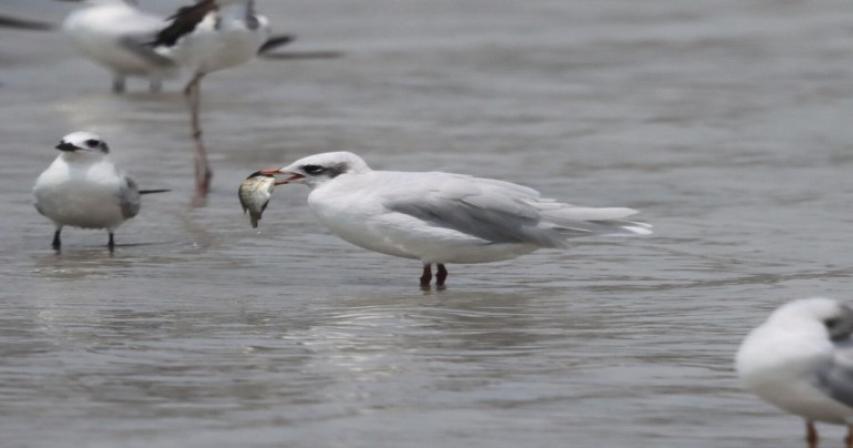Rare Bird Returns to Dubai After 28 Years

According to experienced wildlife expert Reza Khan, a Mediterranean Gull was observed at Dubai's Ras Al Khor Wildlife Sanctuary for the first time in 28 years. The unusual occurrence was witnessed on July 26 by UAE birdwatcher D. Darrell-Lambert and posted on the UAE Bird Alert WhatsApp group.
Commonly seen near the shores of Europe and the Mediterranean Sea, the Mediterranean Gull is classified as a rare species in the UAE.
In the last 25 years, there have been just 15 documented appearances in the nation, with nine in Abu Dhabi, four in Dubai, and two in Sharjah.
78-year old Khan, who is a conservation specialist at Al Marmoom Desert Conservation Reserve, also known as Al Qudra Lake, stated that he started closely observing the bird's actions at RAKWS after the first report. Observing the Mediterranean Gull interact with the Black-headed and Slender-billed Gulls in the wetland was captivating.
According to birdsoftheworld.org, the Mediterranean Gull has a length of 36-38 cm from its bill to tail and a weight of 215-350 grams.
The initial documentation of this species in the UAE occurred on December 27, 1996, at the Ramtha Rubbish Tip, which is currently recognized as Wasit Nature Reserve in Sharjah.
Khan emphasized the unique characteristics of the bird, such as its plumper body, more powerful beak, extended legs, and distinctive dark eye covering. Khan stated that the Mediterranean Gull can be differentiated from the Black-headed Gull by its absence of black feathers on the wings and by its thicker bill with a dark band at the tip, despite their similar appearance.
He clarified that it is easily identifiable due to its distinctive form, black eye-mask, and terminal ring on the bill.
He stated that the bird has mostly been eating tilapia fish in the wetland, and it typically stays in shallow waters with other waterbirds.
Even though the species is labeled as 'Least Concern' on the IUCN Red List, its presence in the UAE is still unclear because it is rarely seen.
Khan stated that the Mediterranean Gull is not at risk while in the UAE, mentioning that RAKWS provides a perfect sanctuary with plentiful food, effective conservation measures, and a flourishing birdwatching group.






Comments